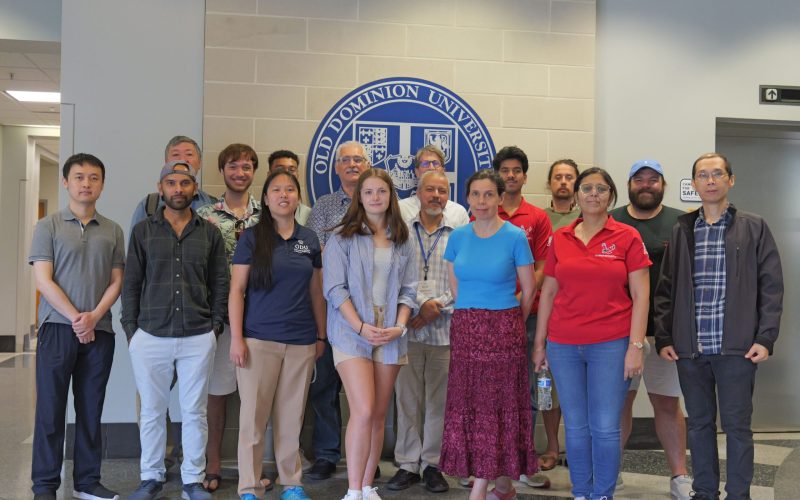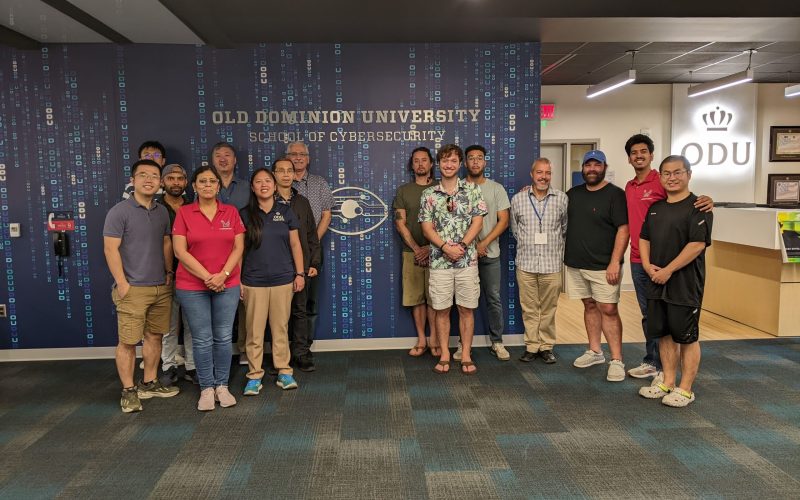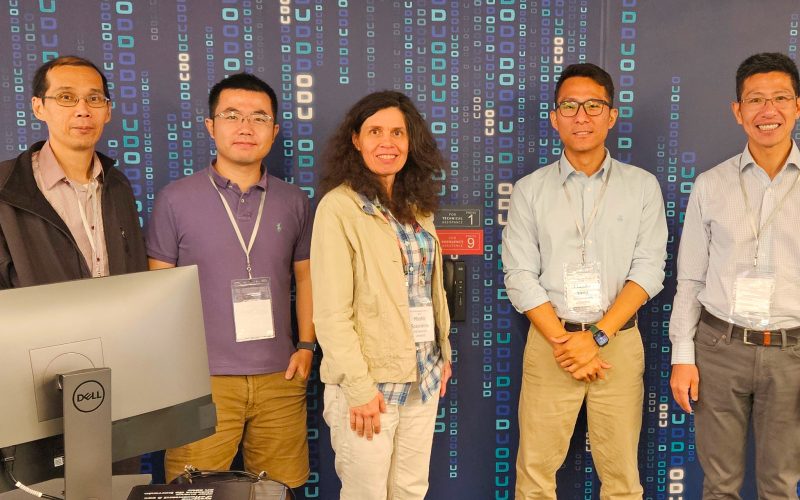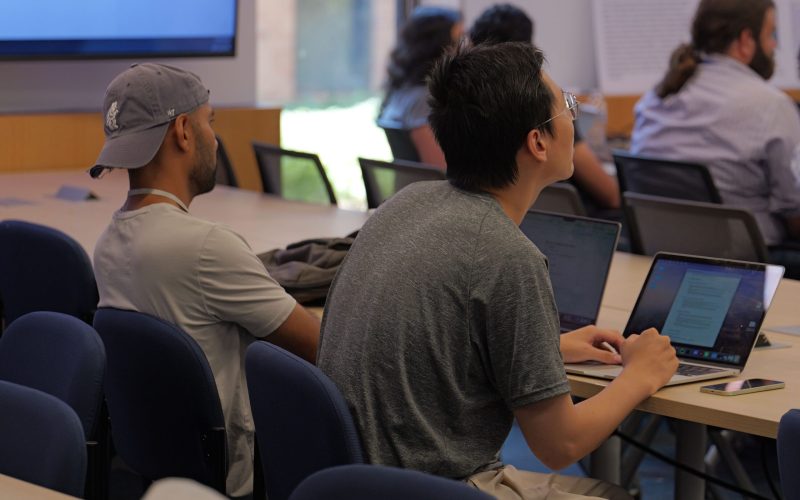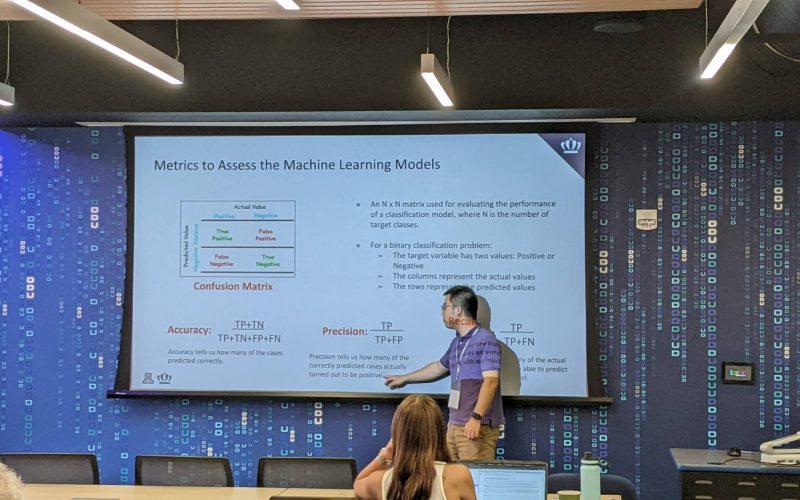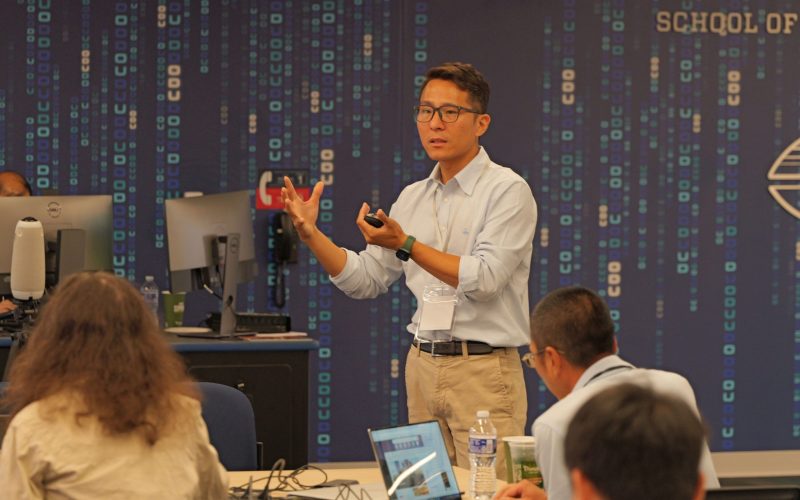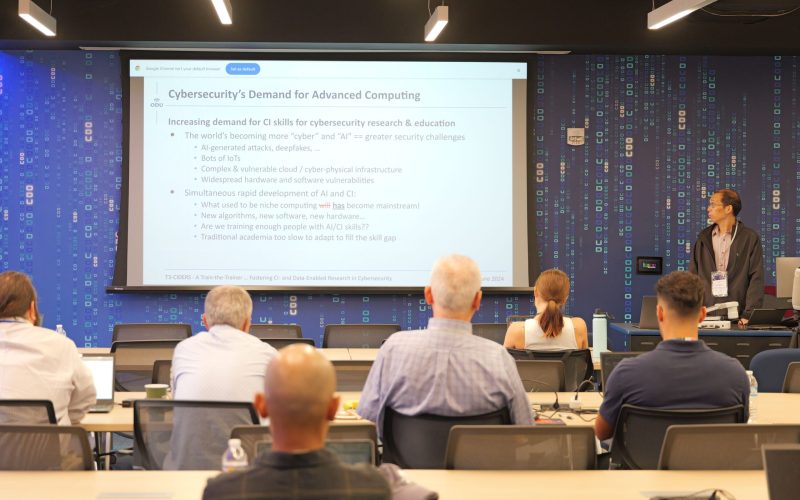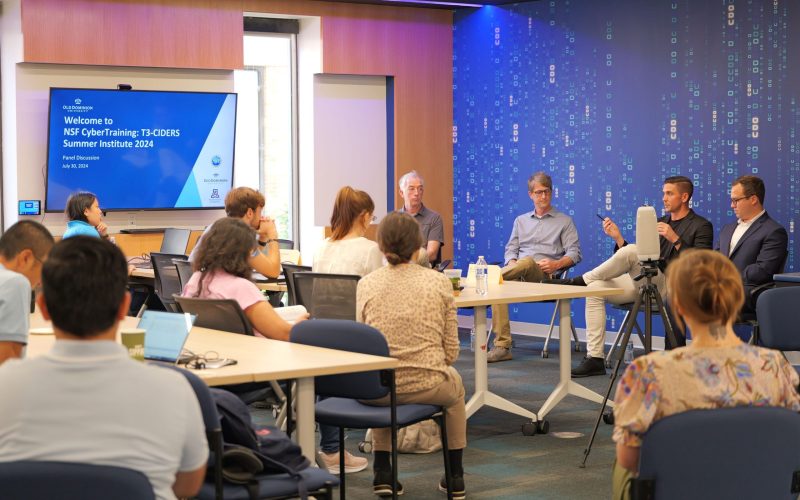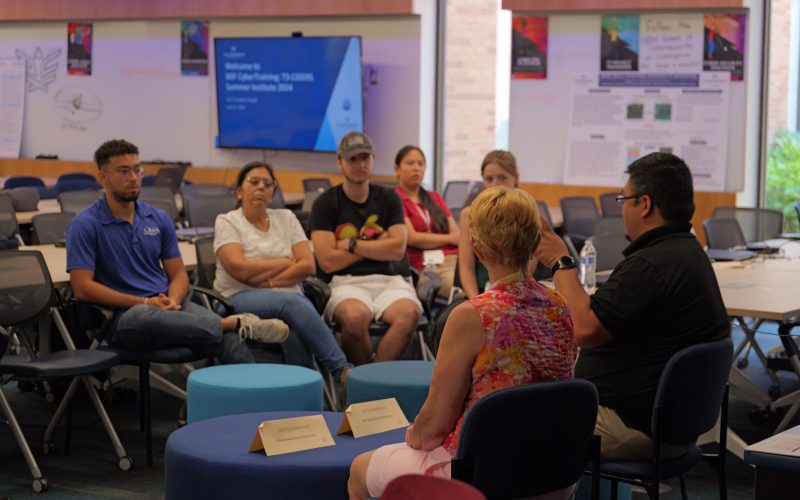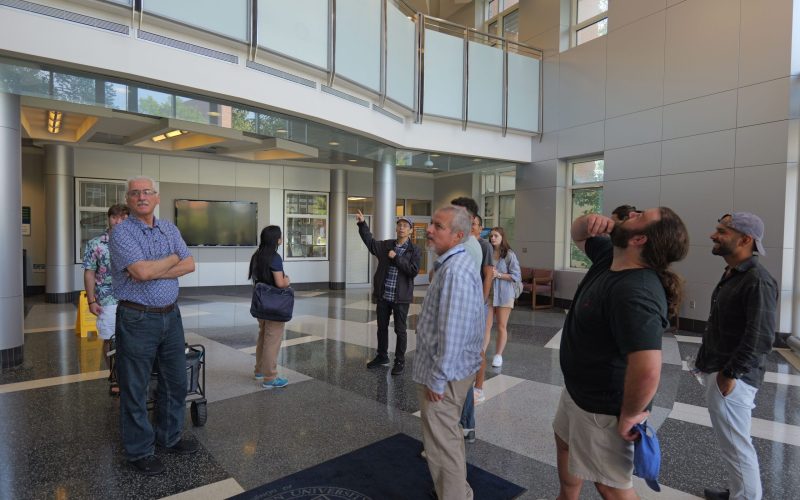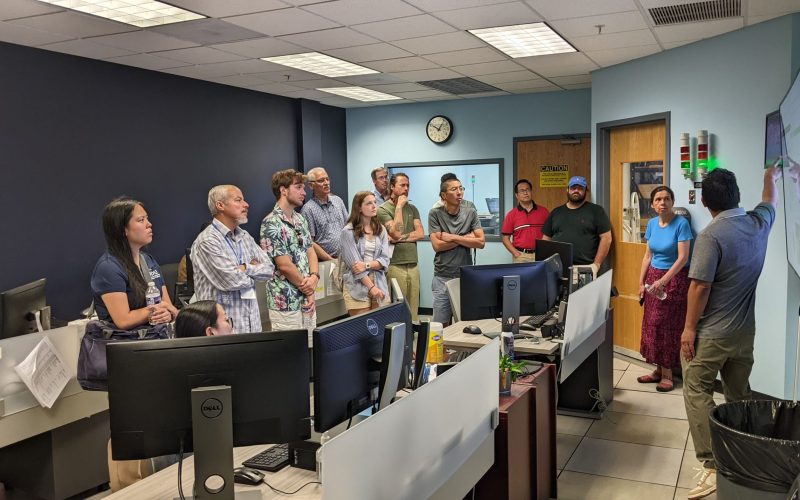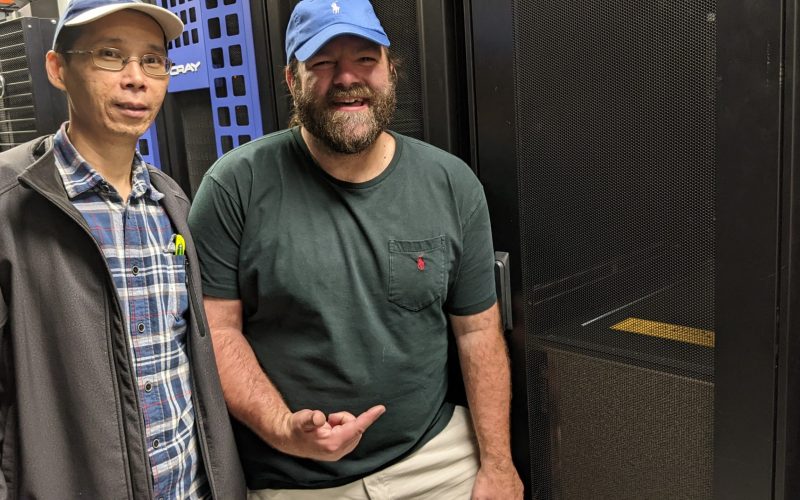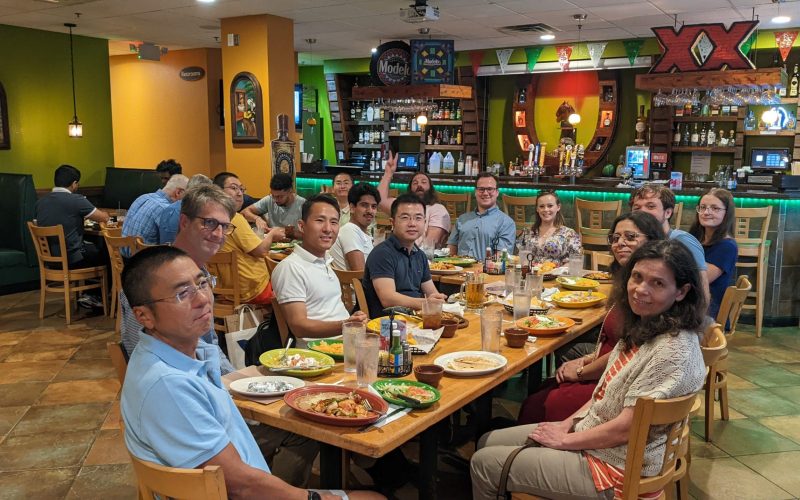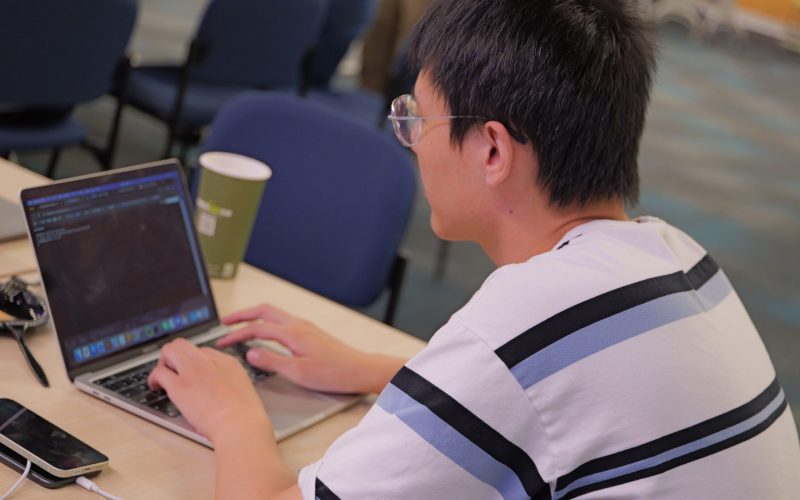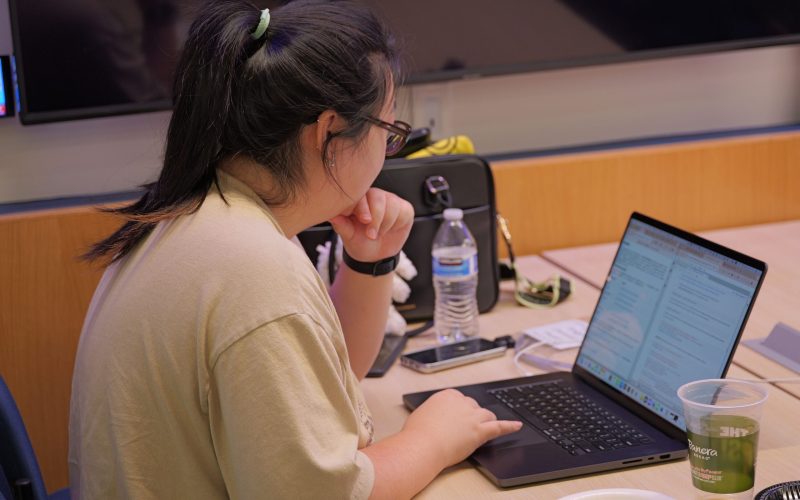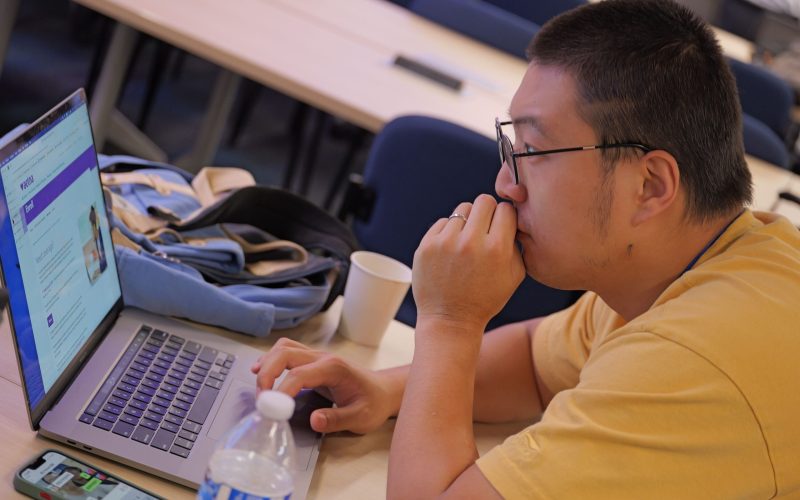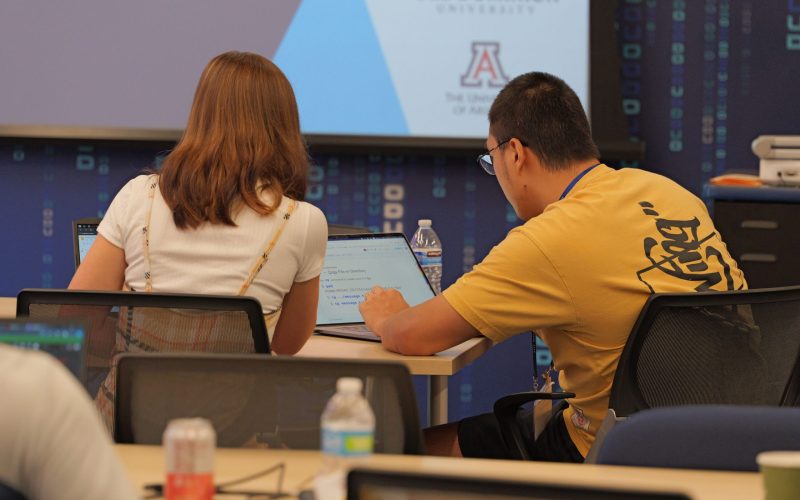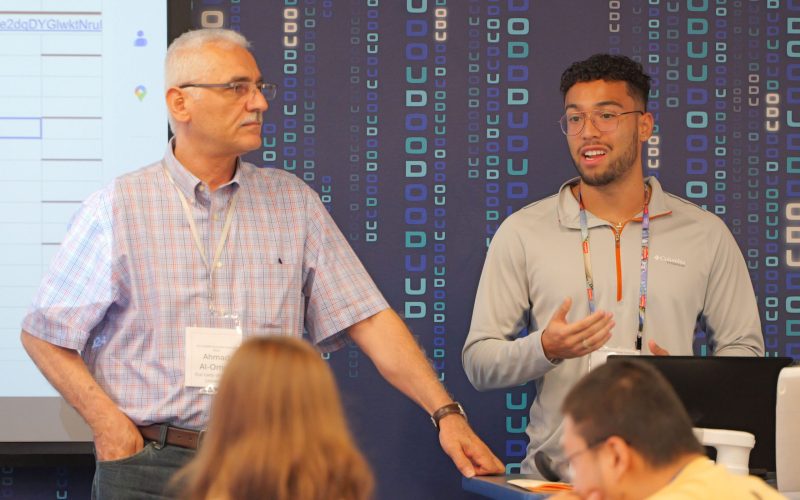2024 Summer Institute Report
The T3-CIDERS 2024 Summer Institute took place on July 29–August 2 at the Norfolk campus of Old Dominion University and offered intensive, hands-on experience designed to enhance knowledge in advanced cyberinfrastructure (CI) skills as well as CI teaching skills. The participants of the Institute are referred to as future trainers (FTs), as they receive technical and pedagogical training to effectively train others in advanced CI skills (such as high-performance computing, big data, machine learning, and parallel programming) with application emphasis to cybersecurity and cyber-related research.
The 2024 Summer Institute drew a total of 20 FTs, consisting of 8 faculty/researchers and 12 students. These FTs came from multiple states (Washington, Texas, Virginia, North Carolina, and New York) and diverse academic backgrounds: Computer science, cybersecurity, information technology, electrical & computer engineering, and finance. Of the 20 participants, 11 are majoring/focused in Cybersecurity, 4 in Computer Science, another 2 in Electrical and Computer Engineering (ECE), 2 in Data Science, and 1 participant in Information Systems.
The Summer Institute program consisted of technical sessions, pedagogy sessions, and expert panels and discussion forums. The structure of the institute is as follows: From Monday through Thursday, each day started with a short lecture on one of the technical topics, followed by hands-on learning. The second half of the day consisted of pedagogical training, followed by studio time for FT’s own lesson planning. In addition, there were two panel discussions with cybersecurity industry professionals and K-12 educators incorporated into the schedule. On Friday, the FTs took a tour of ODU ITS’s Data Center room, then presented short teaching demonstrations based on the lesson plans they had developed over the course of the institute.
The technical sessions introduced concepts and hands-on activities on machine learning, neural networks, cryptography, and parallel programming through lectures and hands-on exercises. Dr. Peng Jiang presented the topics of machine learning and neural networks, with focused applications in cybersecurity. Dr. Wirawan Purwanto introduced privacy and encryption, including the nifty homomorphic encryption which allowed computation on encrypted numbers. He also taught the introductory parallel programming session using Message Passing Interface (MPI) and demonstrated how to write a program that can execute in parallel to perform large-scale computation and data processing—a skill especially relevant for those looking to fully harness the computational power of HPC. The hands-on learning activities were carried out using ODU’s “Wahab” supercomputer; these activities mostly rely on Jupyter notebooks and Wahab remote terminal sessions.
On the pedagogical side, Dr. Mohan Yang led daily instructions on educational foundations, lesson planning, and instructional methods (emphasizing how to design engaging, learner-centered experiences in technical subjects), as well as learner’s evaluation. Dr. Jiang also conducted a teaching demo on malicious URL detection, which illustrated how machine learning can be integrated into lessons on real-world cybersecurity threats such as like phishing. By including active learning techniques and assessment strategies, these pedagogical sessions helped the FTs think critically about how to convey complex concepts in approachable ways.
The Institute also included several panel discussion sessions and a data center tour. The first panel discussion engaged leaders and CEOs of local cybersecurity companies and the director ODU Research & Cloud Computing Services, who provided insights into the industry’s landscape and the current challenges in cybersecurity that they face. The second panel engaged two K-12 educators who shared strategies for engaging younger students in cybersecurity and cyber technologies. A third discussion session engaged all the FTs to discuss the potential future lessons to be added to the T3-CIDERS technical curriculum, in order to stay abreast of the evolving needs in cybersecurity research and education. On the last day (Friday 8/2), ODU’s Research and Cloud Computing (RCC) group, led by the RCC director John Pratt, hosted a tour to ODU’s data center, where FTs could see the Wahab cluster as well as the other technologies which enabled all the cool CI techniques they had been learning throughout the week.
As part of the hands-on pedagogical activities, the FTs drafted and presented their own lesson proposals of different CI+cybersecurity topics, such as malware analysis, intrusion detection, and large-scale IoT attack detection. One lesson proposal tailored the teaching of AI for business students with minimal technical background, demonstrating how to present machine learning concepts in a way that is accessible for general non-technical audiences. As the concluding part of the Institute, the FTs prepared and presented short teaching demonstrations based on their draft teaching plan. Both the fellow FTs and the project team provided feedback during this time to improve their own teaching in the future.
The T3-CIDERS team has succeeded conducting its first Summer Institute with the 2024 cohort. Following the Institute, the team has been diligently following up with each FT to facilitate their preparation and delivery of CI skills teaching activities at their own institutions. Continual interactions among the FTs are encouraged through regular virtual meetings and conversations in order to build a community of researchers and trainers who are capable of teaching CI skills to students and other researchers.

